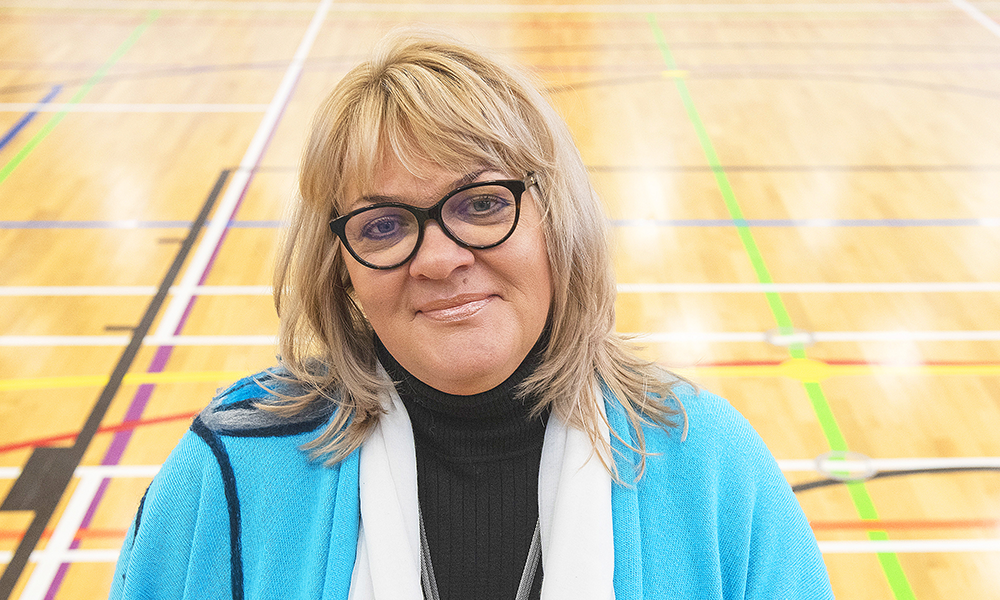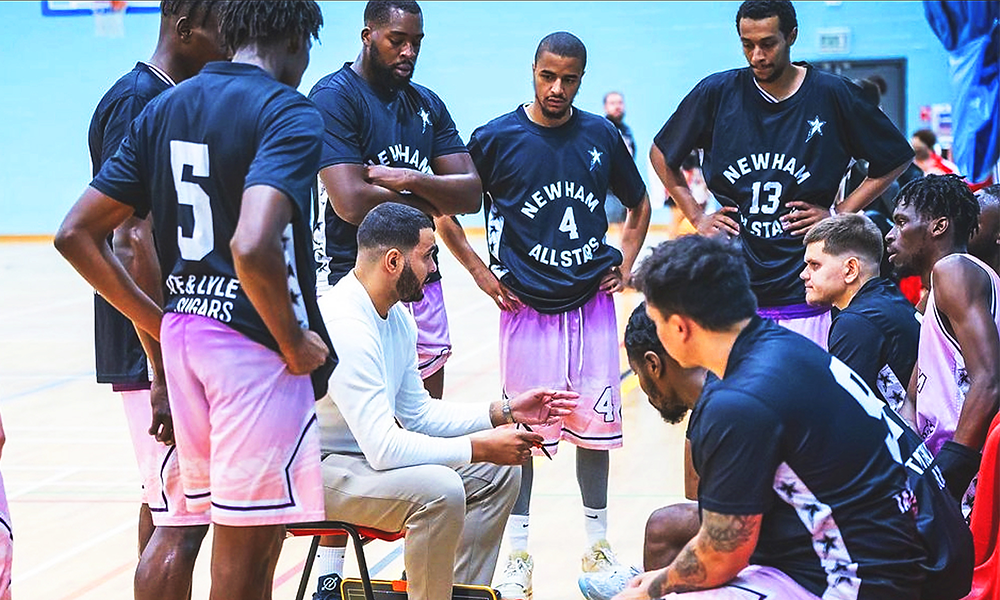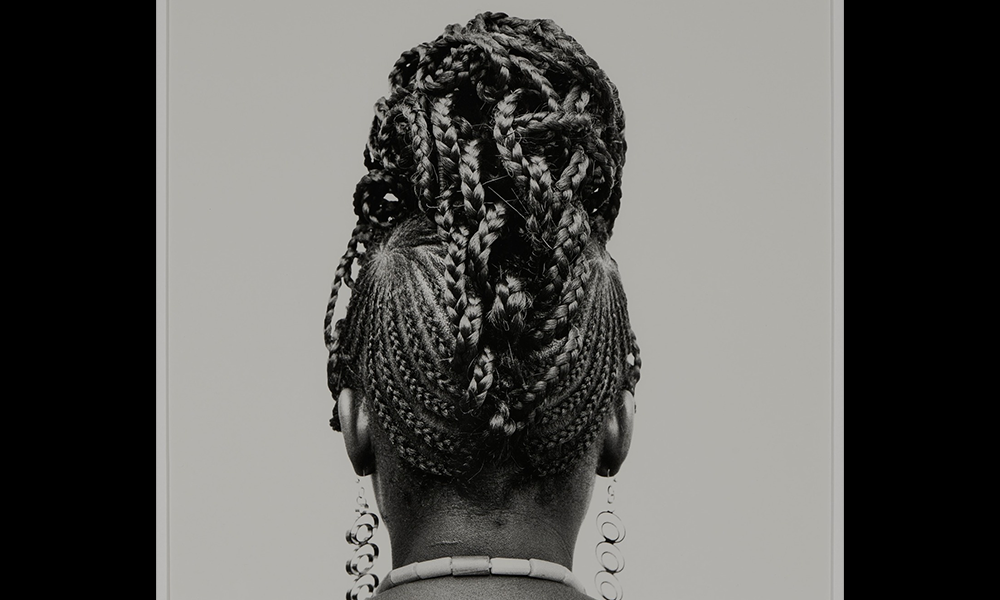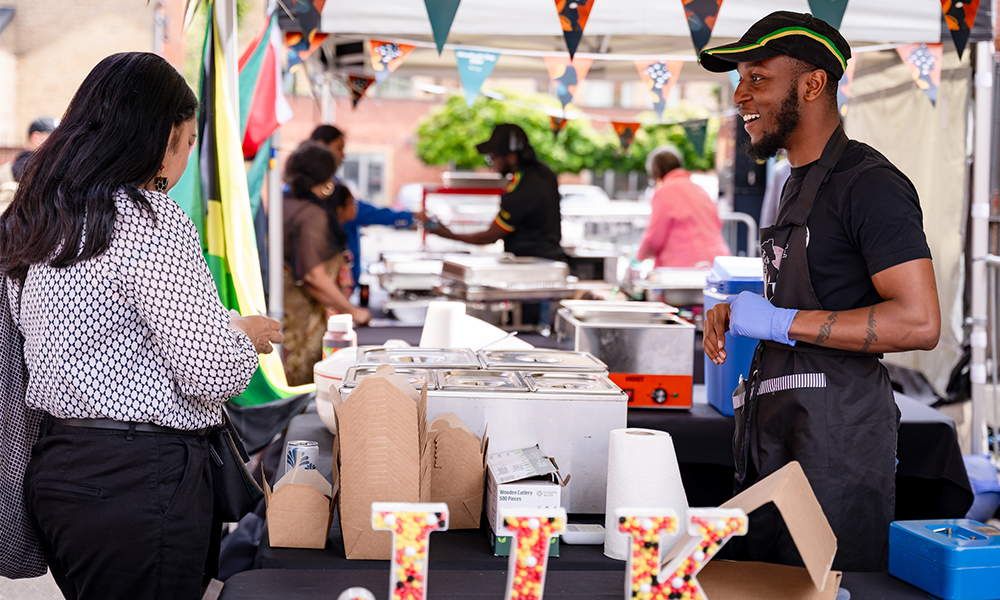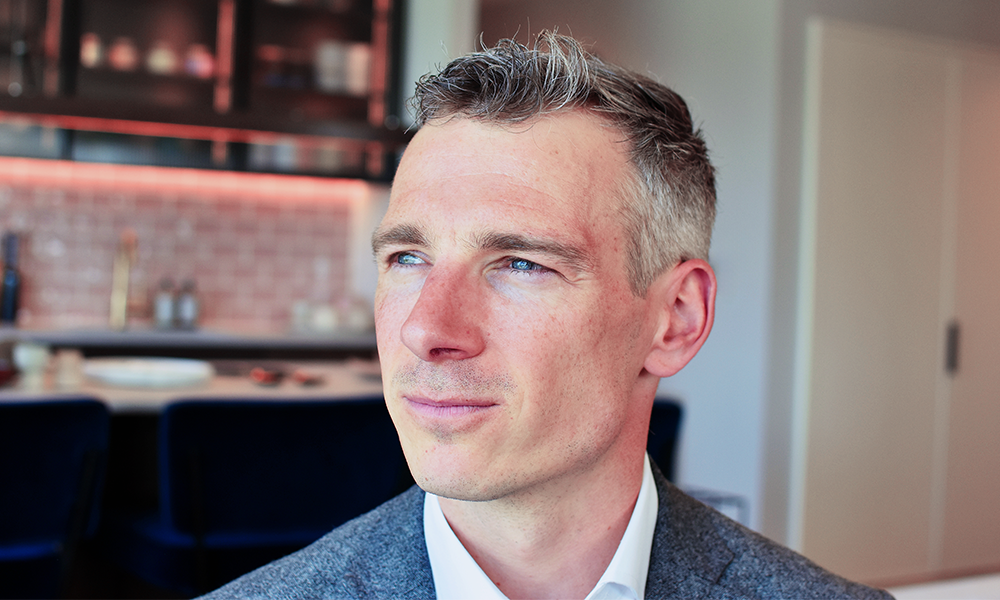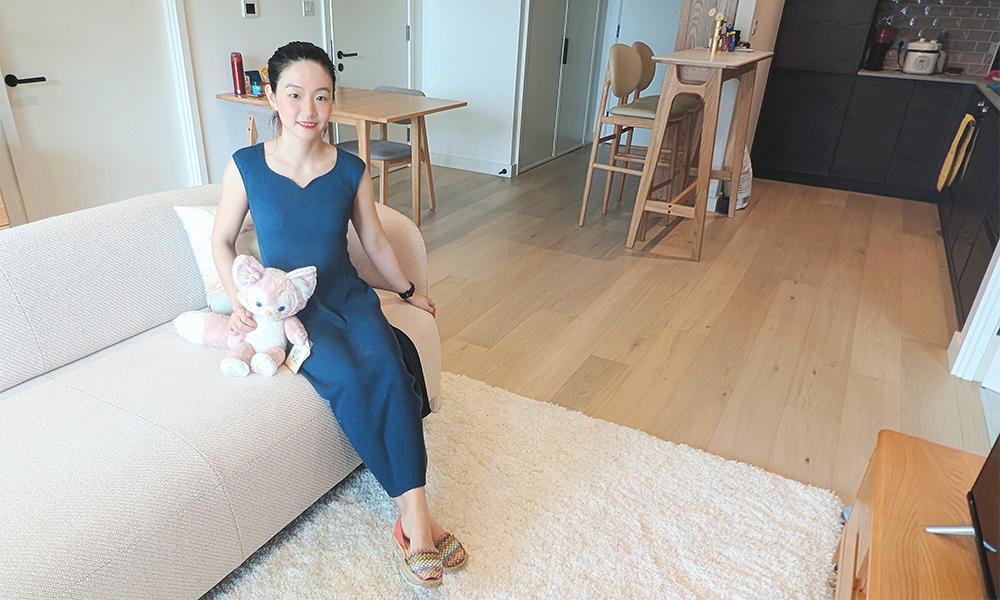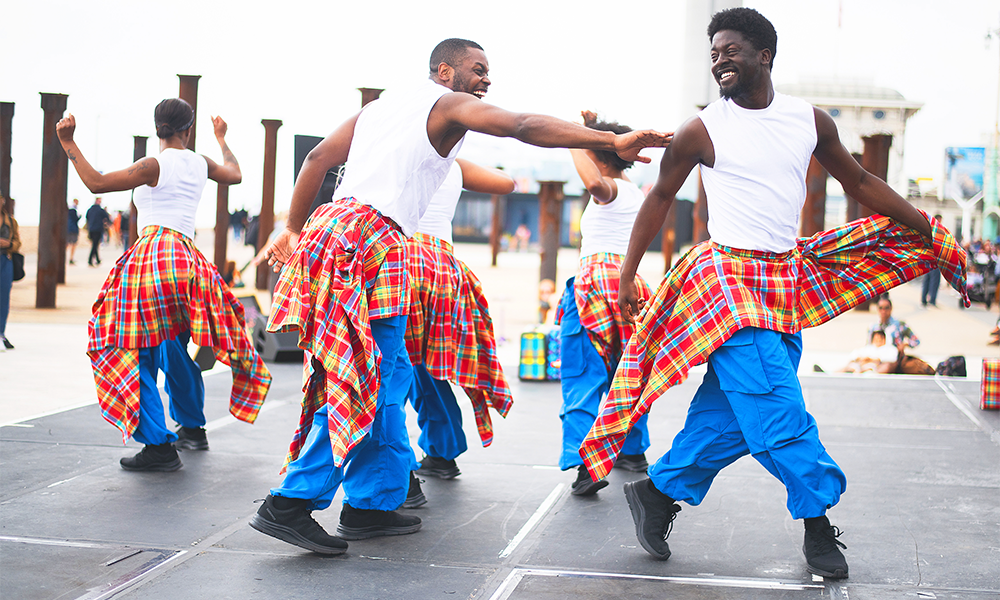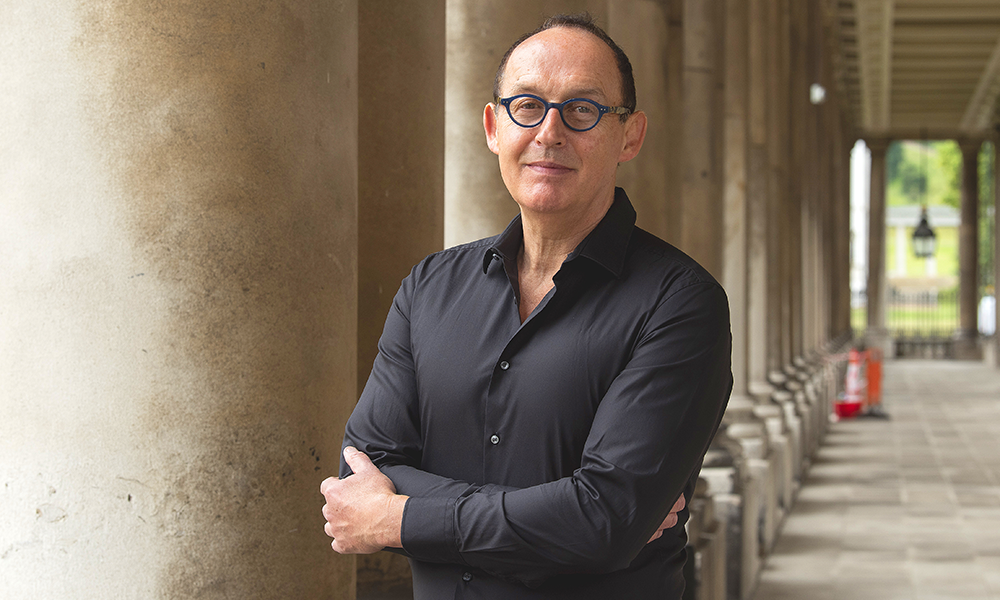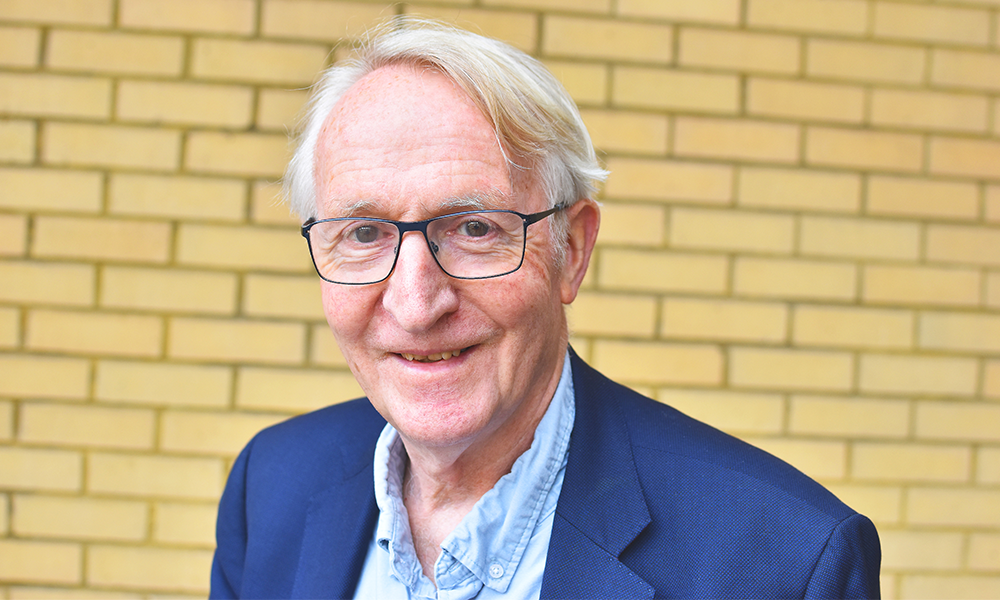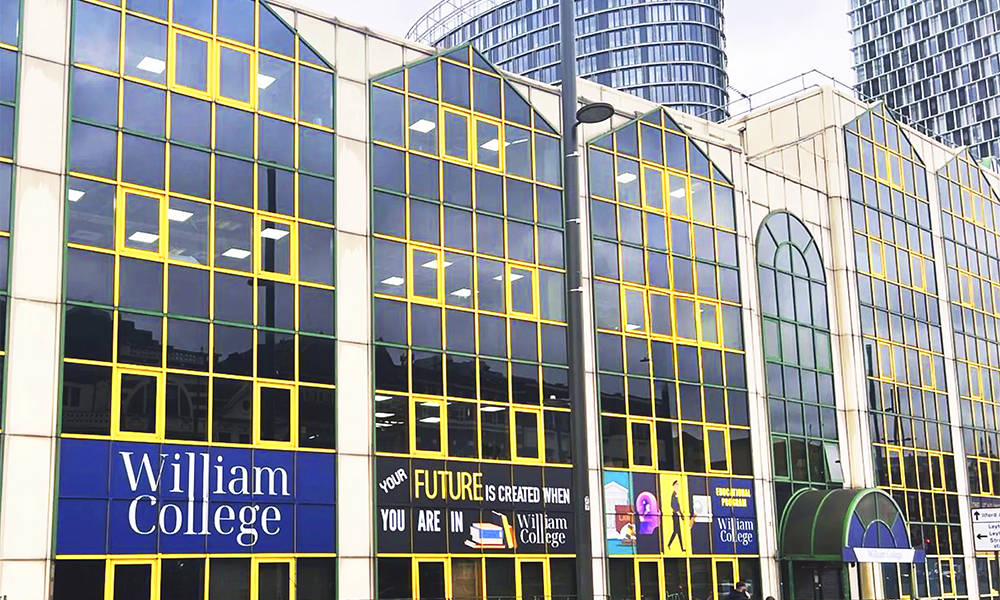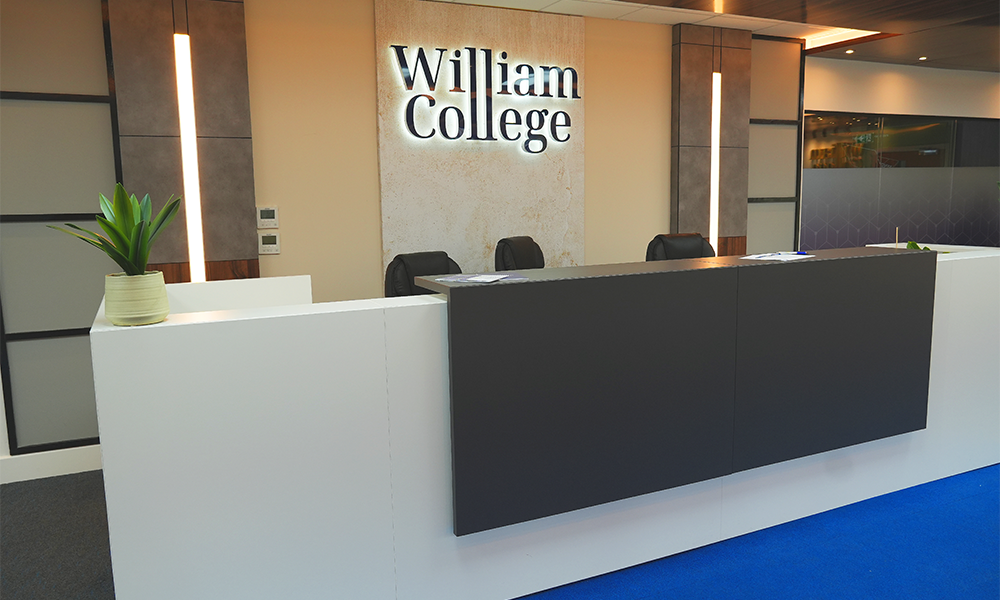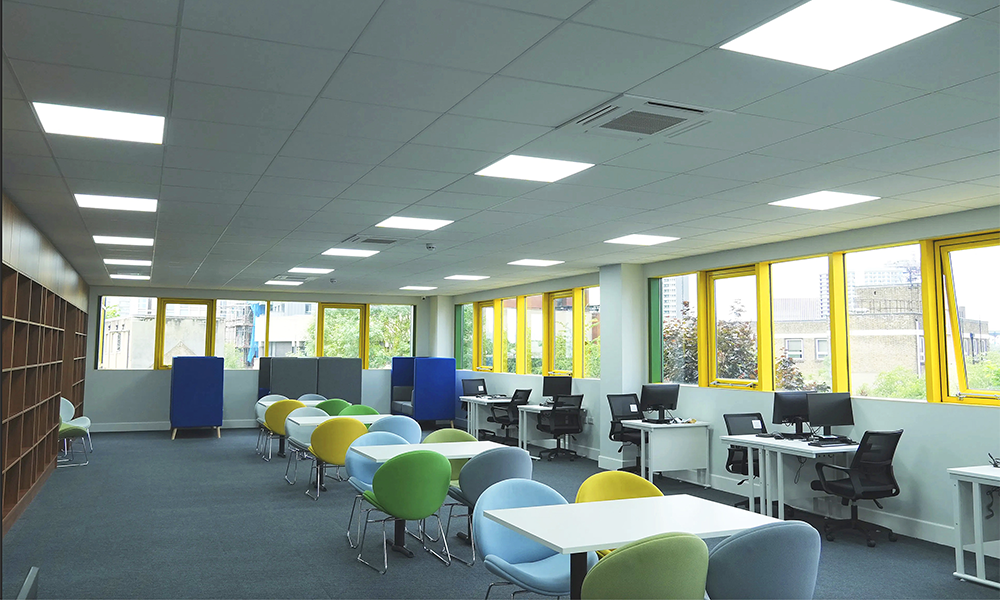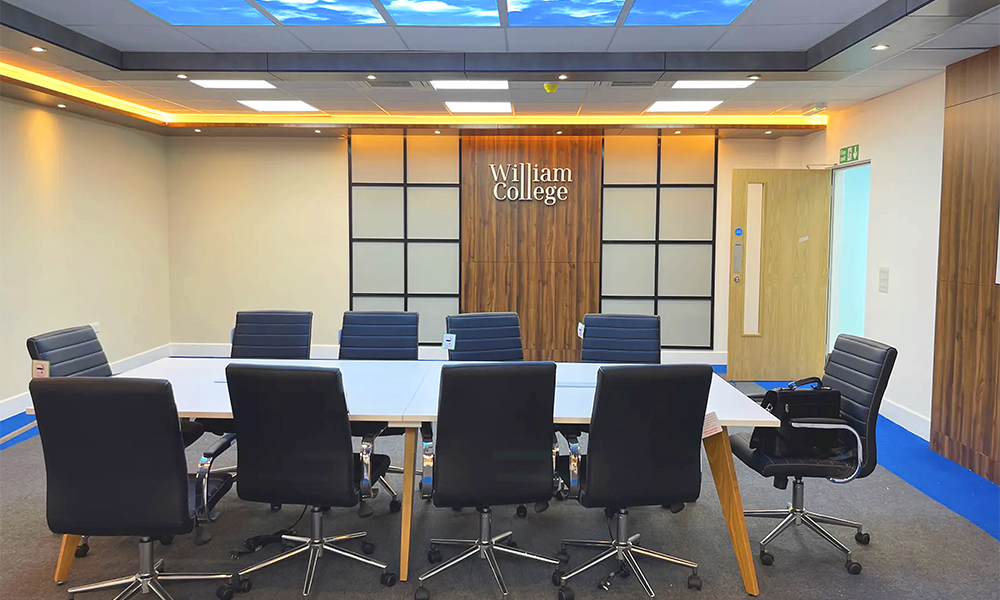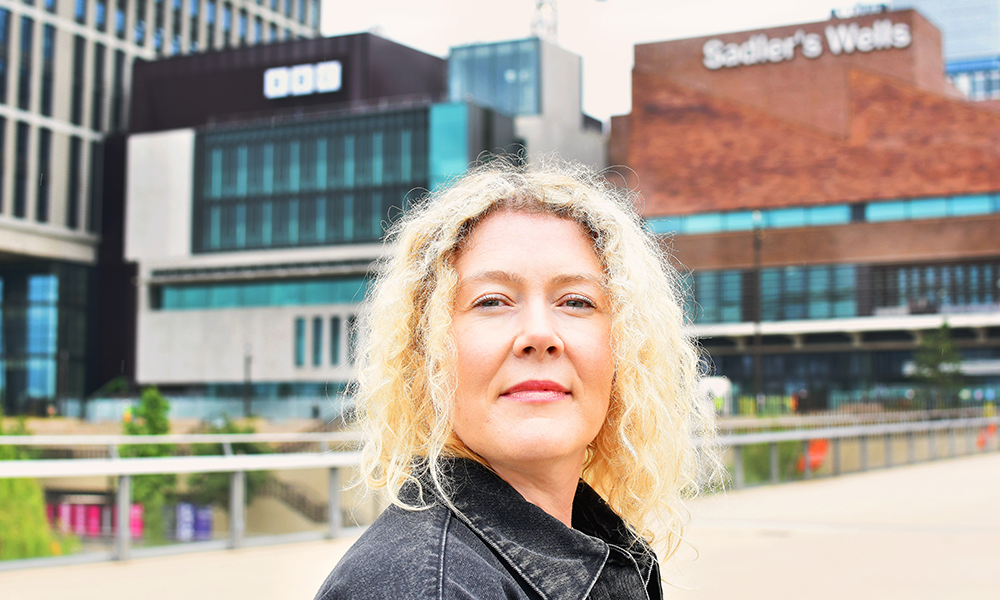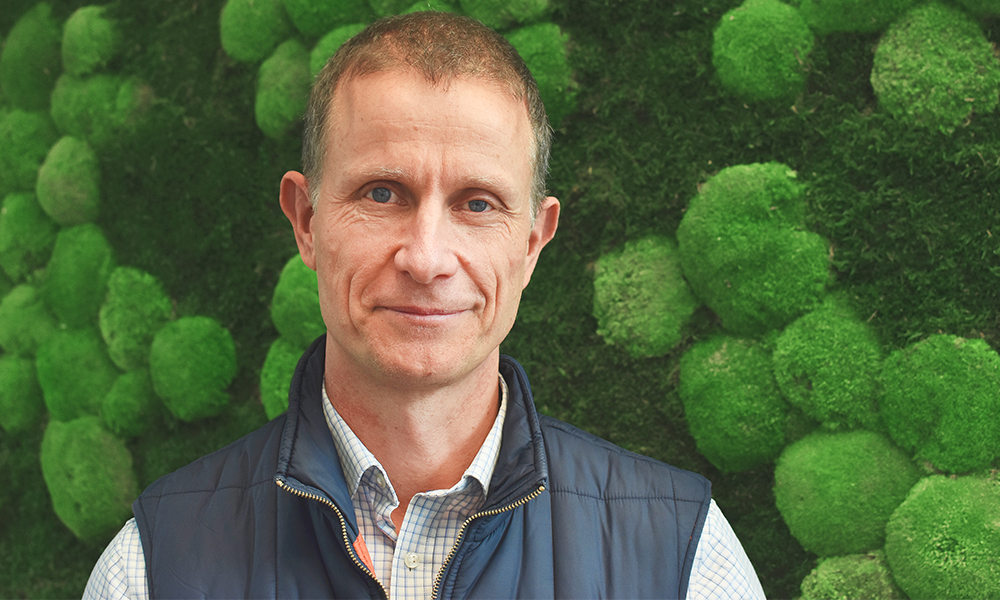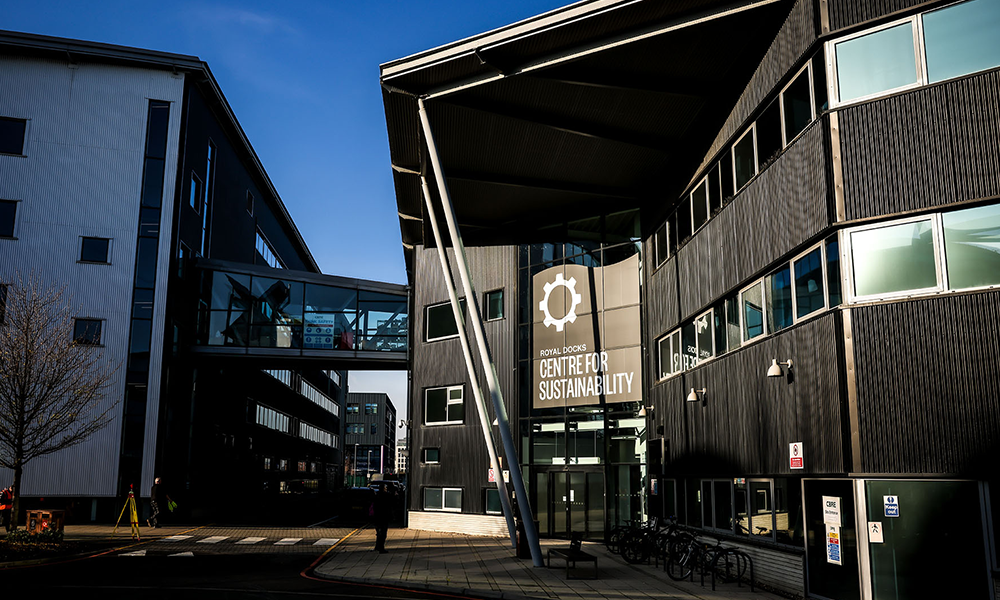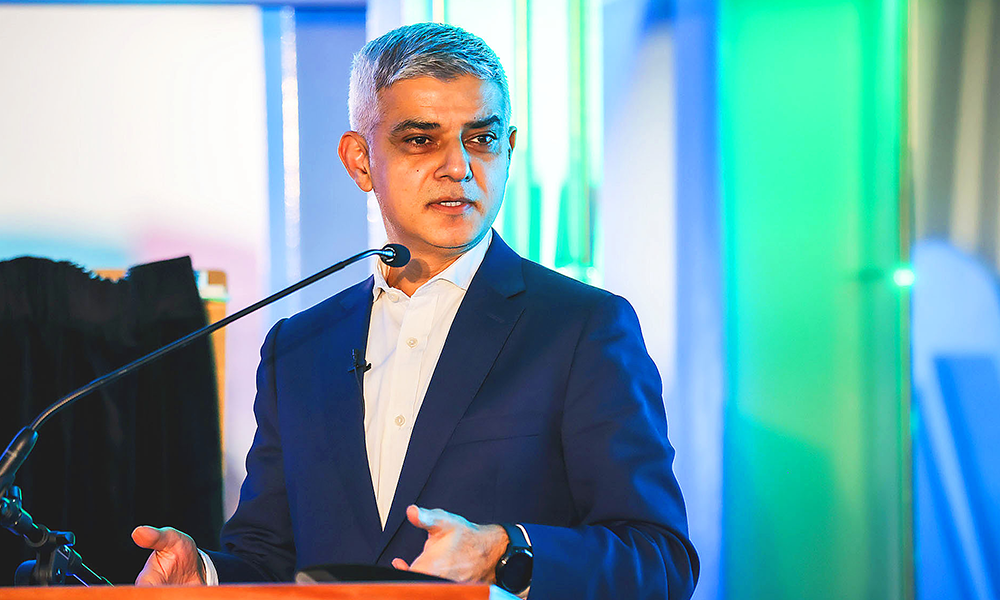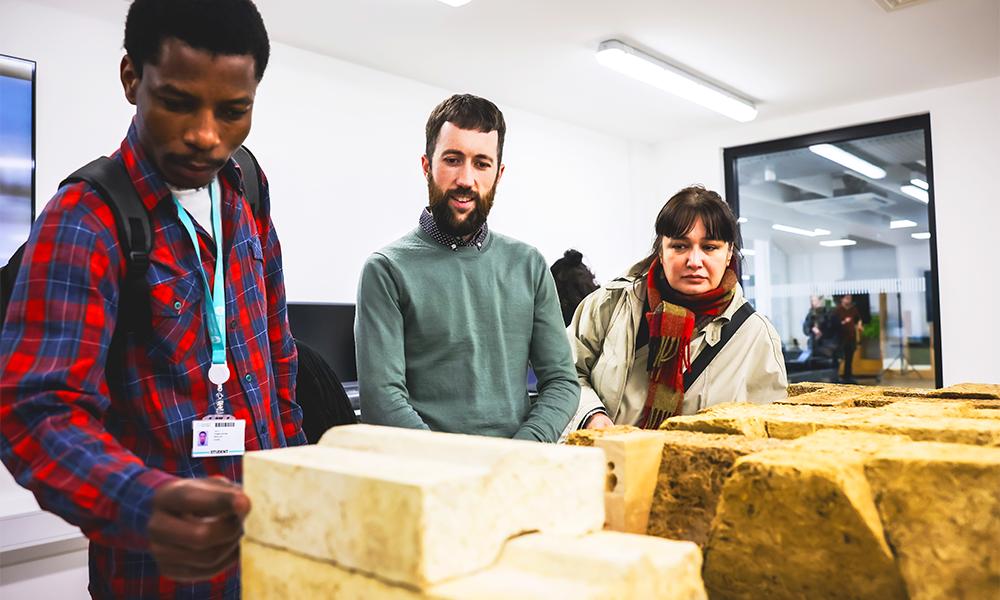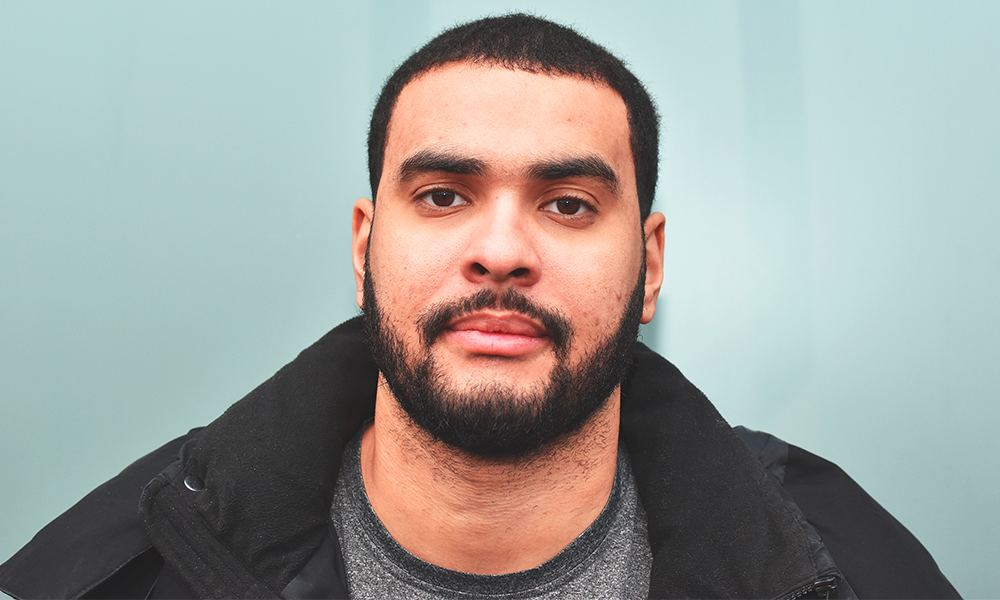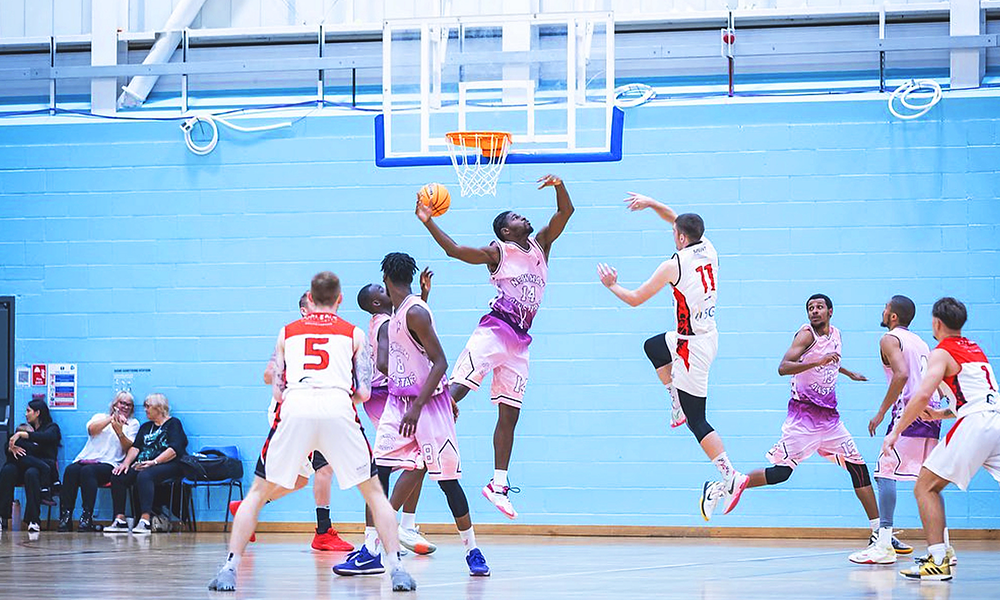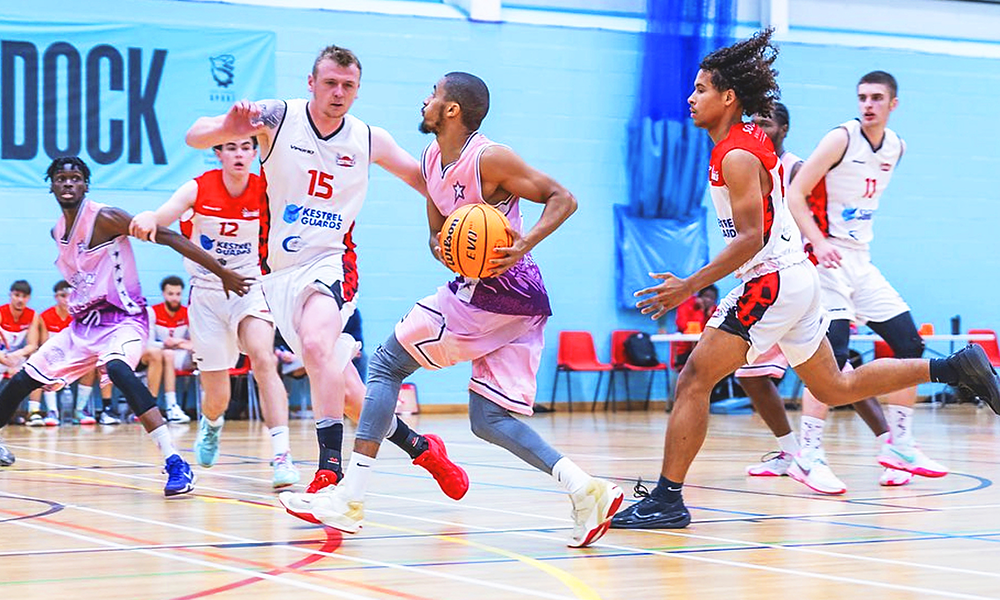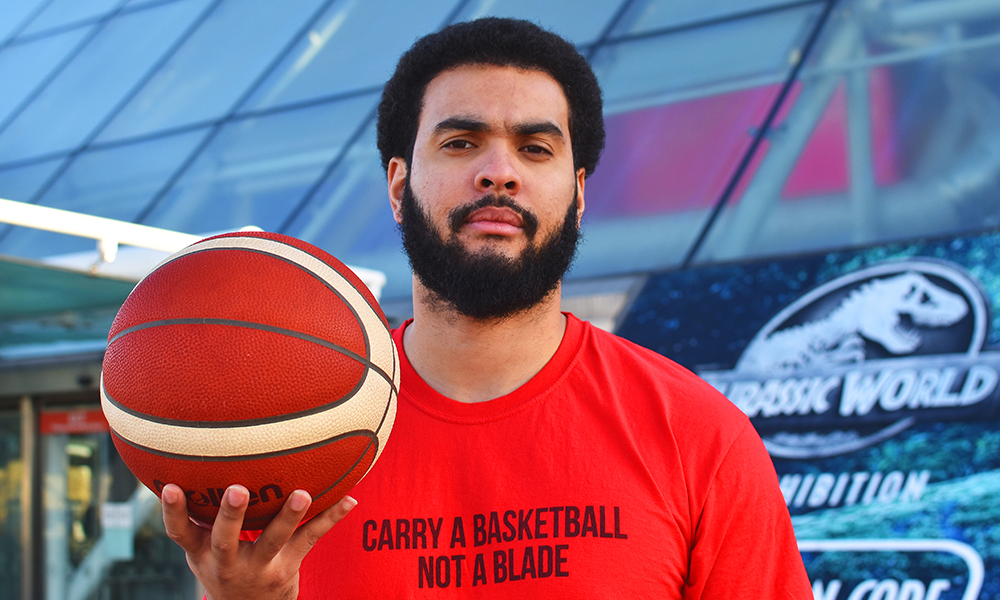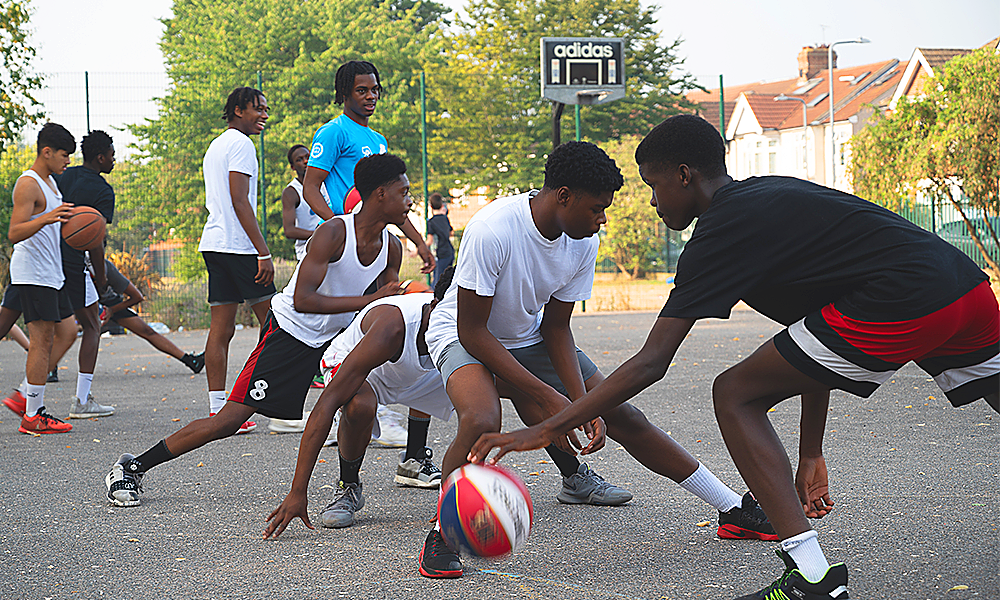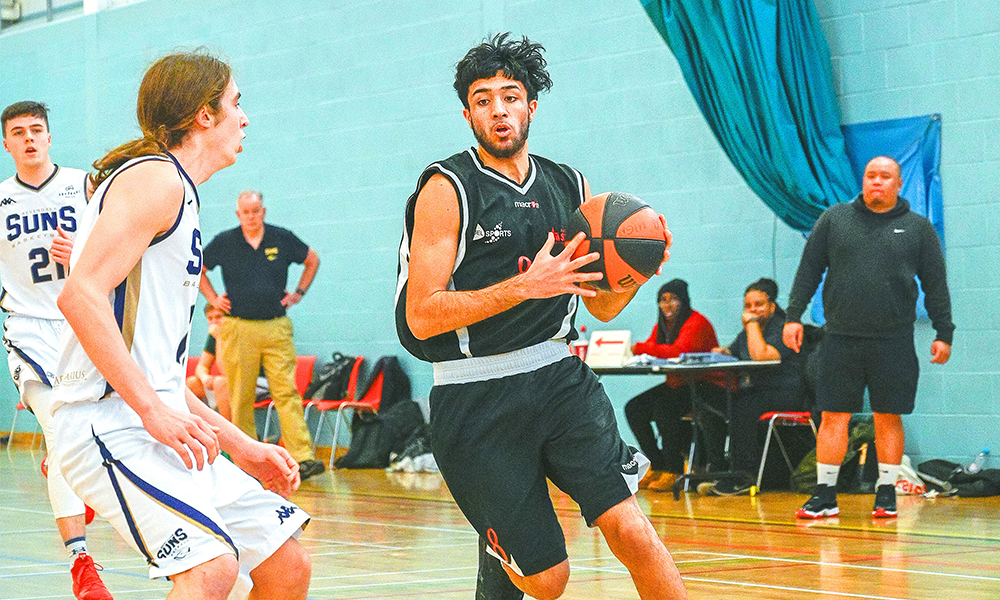Clive Lyttle’s Certain Blacks is curating a weekend programme of acrobatics aimed at delighting, entertaining and educating visitors
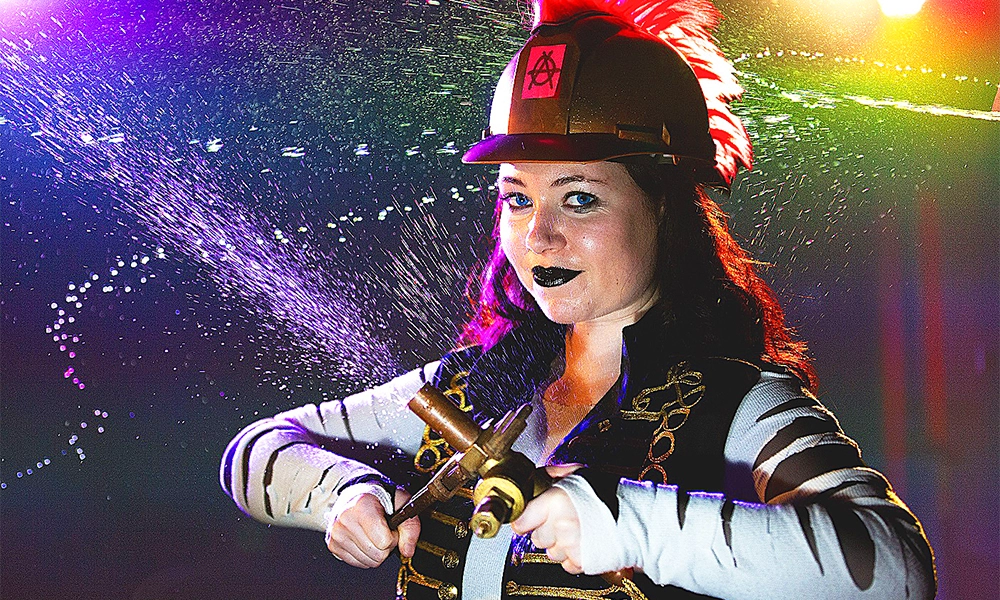
Subscribe to our free Wharf Whispers newsletter here
Certain Blacks’ Ensemble Festival is set to return to Royal Docks for two days of “excitement, entertainment and a bit of education” over the last weekend in July.
“Right now it’s quite hectic,” said Clive Lyttle, artistic director at Royal Docks-based Certain Blacks, which curates the event.
“We’ve got two new directors on board and we’re training staff to work on the festival.
“We’ve got 10 young people who we recruit locally for the event – we try not to use volunteers because we know those living in the East End don’t necessarily have the ability to say they’ll do it for free and we want to give as many people as possible a bit of experience working in the arts.”
That focus on diversity is at the core of Ensemble Festival. Returning for a sixth time, the event is an outdoor celebration of circus, dance, physical theatre and street art – free at the point of delivery and as accessible possible.
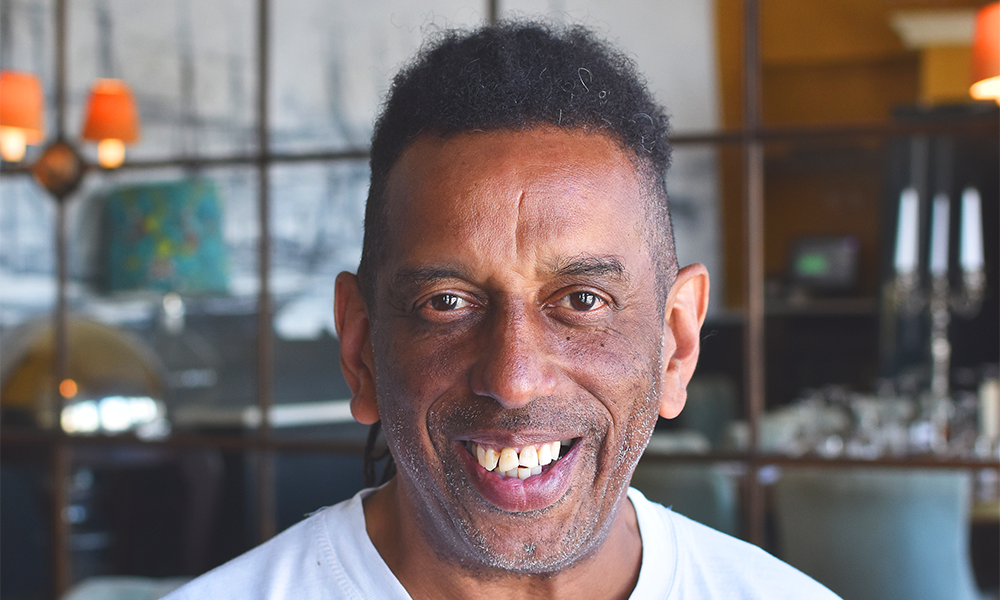
entertainment and education
“The festival represents everything we’re about at Certain Blacks,” said Clive.
“There’s education alongside the shows and hopefully visitors will find out some new things and they’ll be mesmerised and entertained while that happens.
“Everyone needs a bit of a smile with everything that’s going on at the moment, and we hope they’ll get out and enjoy the wider area as well.
“This year, we’re working in partnership with the Royal Docks Team, which will be launching its free Summer Splash lido on the Sunday.
“The festival itself is going to have a bigger footprint too including performances outside City Hall on the greens so we’re growing it. We’ve got some really fantastic shows and I’m very excited about it.”
Certain Blacks is part of a network called Without Walls, a national consortium of more than 35 organisations presenting arts outdoors to people in towns and cities across England.
It works to commission and develop new work each year that can then tour the country and is supported by the Arts Council, where Clive worked for many years with a special focus on Newham.
He’s also a local resident, living opposite Excel in the Flying Angel, a former seaman’s hospital for more than a century before its conversion to apartments.

how Ensemble Festival draws visitors to the docks
“While we’re a festival for locals, we also attract people from across London – that’s one of our big aims,” said Clive.
“We always try to book the best, diverse artists available.
“The biggest show will be Tell Me, a whole programme from Without Walls about the experience of being diagnosed with HIV and living with that.
“It features circus artists and really large red cubes – the acrobatics are spectacular.
“It’s presented by the Sadiq Ali Company and features breathtaking Chinese pole work.
“We also have Waiting Song from Mish Weaver, where two trapeze artists perform to live music.
“The two artists ask the audience what they are waiting for in the workplace and they chat to each other.”
The latter, billed as a “lyrical exploration of how anticipation shapes our emotions and actions” as the acrobats engage mid-air in “a melodic conversation about their hopes for the future” exemplifies the physical nature of many of the shows.
Other highlights include Hug by Levantes Dance Theatre, with an artist soaring about the docks on a sway pole, Holy Dirt by Vidya Productions and David Glass, which blends live percussion and Indian performance styles with modern physical theatre and NoMo by Tiago Fonseca – a clown show about addiction to screens featuring juggling and body language.
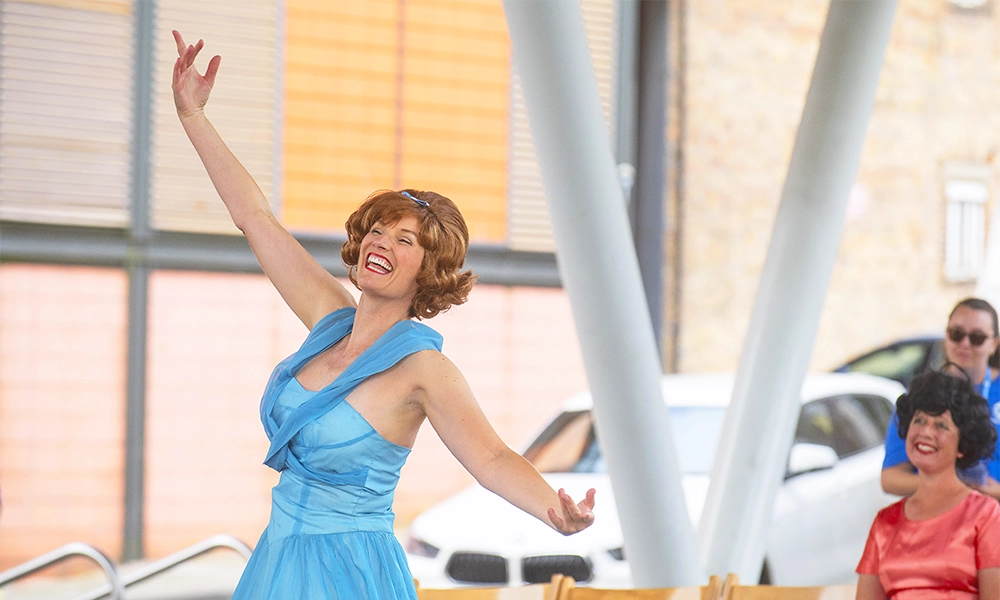
a sense of fun
Ensemble Festival is often about radical movement then, but also a bit of a laugh.
“When the Mayor Of London moved in, they were a bit cautious about having shows right outside City Hall,” said Clive.
“But we’re working with the Royal Docks Team, which is based inside and this time we’ve got a great water installation that’s going to take place on the grass right next to the beach area.
“If the weather’s as hot as it has been recently, it’s going to be really amazing summer entertainment.”
Artizani and Tenderfoot Theatre’s Hydropunk promises a chance for the public to get up close to the wet stuff as a “chaotic, yet playful water machine cranks into motion”.
The show is intended as a metaphor where everyone participating must work together to recycle the liquid and keep the fun flowing.
“We’ve also got quirkier acts, such as Palais De Dance,” said Clive.
“This show looks back to the Festival Of Britain, the 1950s and the whole dancehall culture, which we hope will speak to more of our older audiences.”
Presented by Olivier Award-winning live artist Miss High Leg Kick, aka Francesca Baglione, the spectacle promises a multi-sensory flashback with a twist to an era of celebrity appeal and the excitement of teenage nights out both then and now.
Other shows presented include The Hide, by Tilly Ingram, an installation and audio experience led by the artist that takes inspiration from birdwatching and reflects on hidden disabilities and Roots To Rise, a combination of poetry, movement and music that represents a call to ecological action from Nandita Shankardass.
Then, rounding things off, there’s Truth from Ramshacklicious and Hijinx, which will only be performed on the Sunday.
This “joyful street revolution” features a mixed cast of disabled and non-disabled performers and promises a riotous show that combines clowning with physical theatre and original music in an interactive, partly improvised happening with a message of hope.
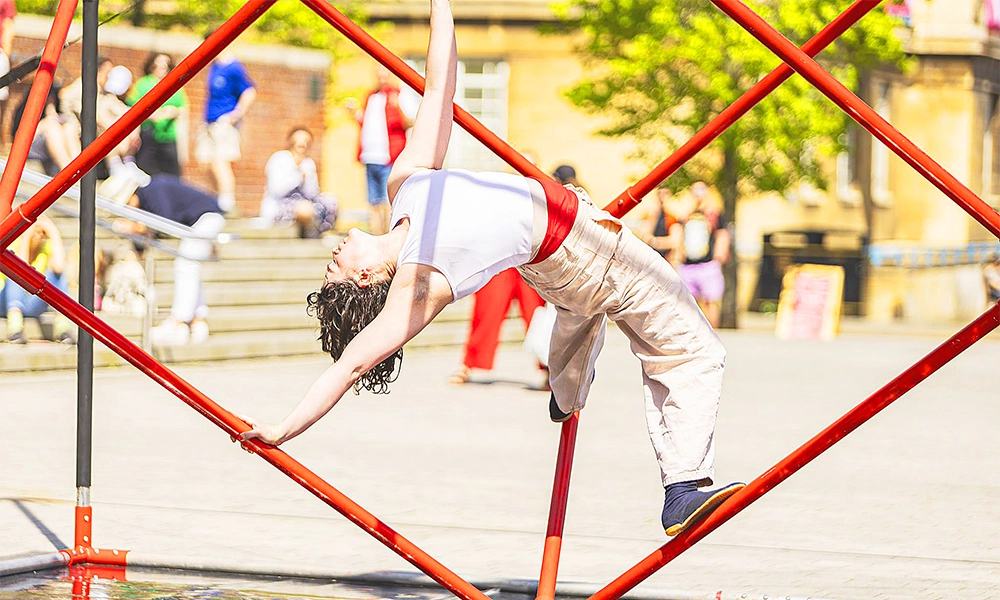
key details: Ensemble Festival 2025
Ensemble Festival is set to take place from noon-8pm on July 26 and 27, 2025 at Royal Victoria Dock.
All performances and activities are free to attend and no booking is required.
Precise times and locations will be available online prior to the festival and event stewards will be on site to guide visitors.
Find out more about the festival here




